Whether you’re a busy professional or an enthusiastic home cook, there are times when you end up with more cooked rice than you can consume. This raises the question: can I freeze cooked rice?
In this comprehensive guide, we will explore the importance of properly storing cooked rice, the benefits of freezing, and step-by-step instructions for freezing and reheating different types of rice.
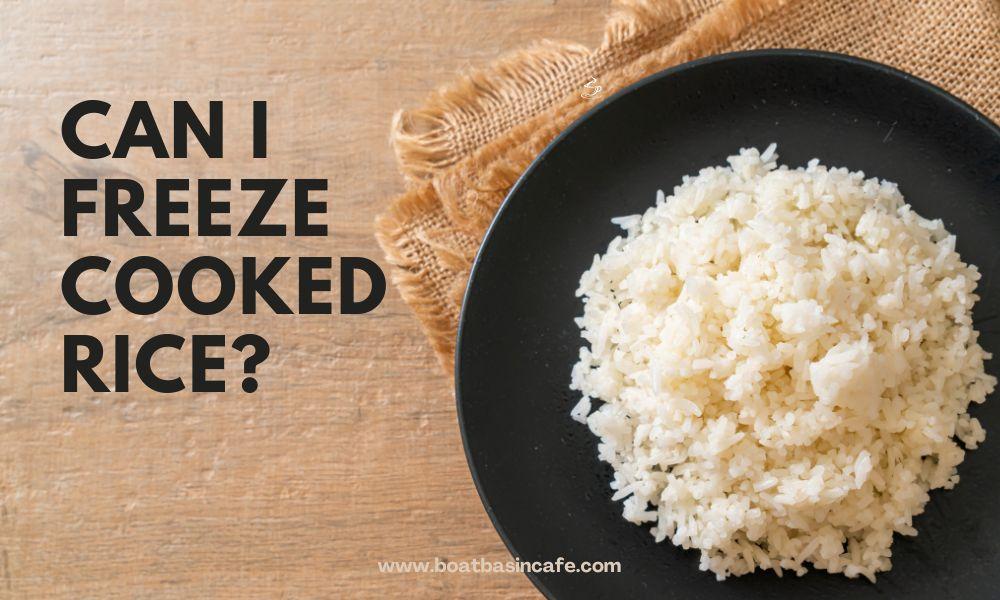
Can I Freeze Cooked Rice?
Absolutely! Freezing cooked rice is not only possible, but it’s also a fantastic way to preserve its quality and taste for future meals.
Additionally, a study discussed in an Insider article found that cooling rice after cooking may help reduce blood sugar spikes after eating. As high-carb foods sit after cooking, a type of carbohydrate called resistant starch develops, which may help balance blood sugar and regulate appetite and energy.
Based on extensive experiments and tried-and-tested methods, we’ll show you the best practices for freezing and reheating a variety of rice types.
Importance of Knowing How to Store Cooked Rice Properly
Improper storage of cooked rice can lead to bacterial growth, such as Bacillus cereus, which can cause food poisoning. Thus, it’s crucial to know how to store cooked rice safely. Freezing is a preferable method to refrigeration because it preserves the taste, texture, and quality of cooked rice while preventing bacterial growth.
The Benefits of Freezing Cooked Rice
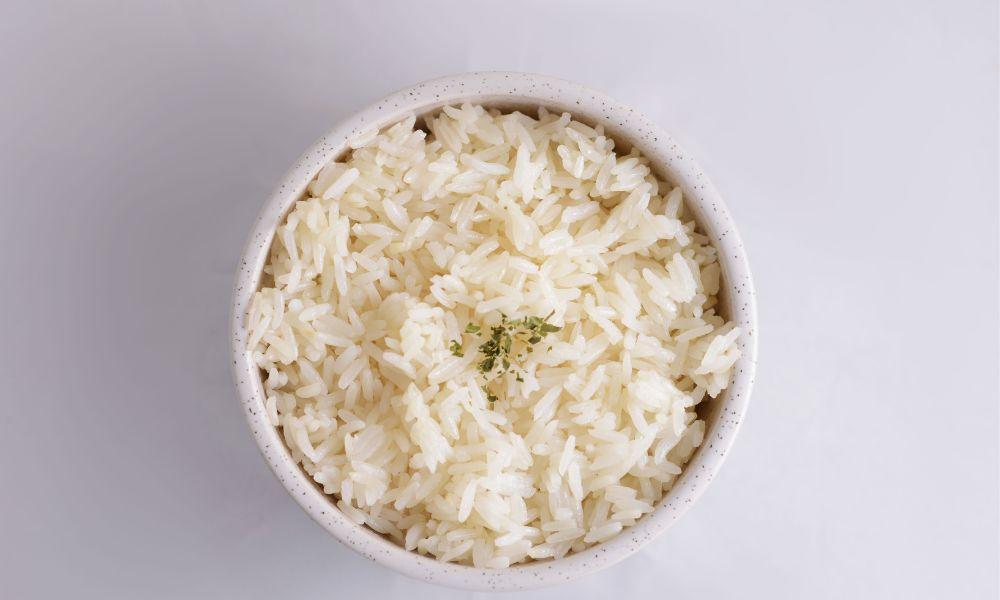
Preserving Freshness and Flavor
Freezing cooked rice helps retain its taste and texture by slowing down the deterioration process. This way, you can enjoy your rice dishes as if they were freshly cooked, even after weeks or months.
Bacterial Concerns
As mentioned earlier, rice can harbor Bacillus cereus, a spore-forming bacteria that can cause food poisoning. Freezing cooked rice inhibits bacterial growth, making it a safer storage option compared to refrigeration.
Convenience
Freezing cooked rice allows you to prepare meals in advance, making meal planning easier. With pre-portioned, frozen rice, you can quickly reheat and serve your favorite dishes. This is especially useful for those busy weeknights or when you need to determine how much rice to cook per person.
Preparing Rice for Freezing
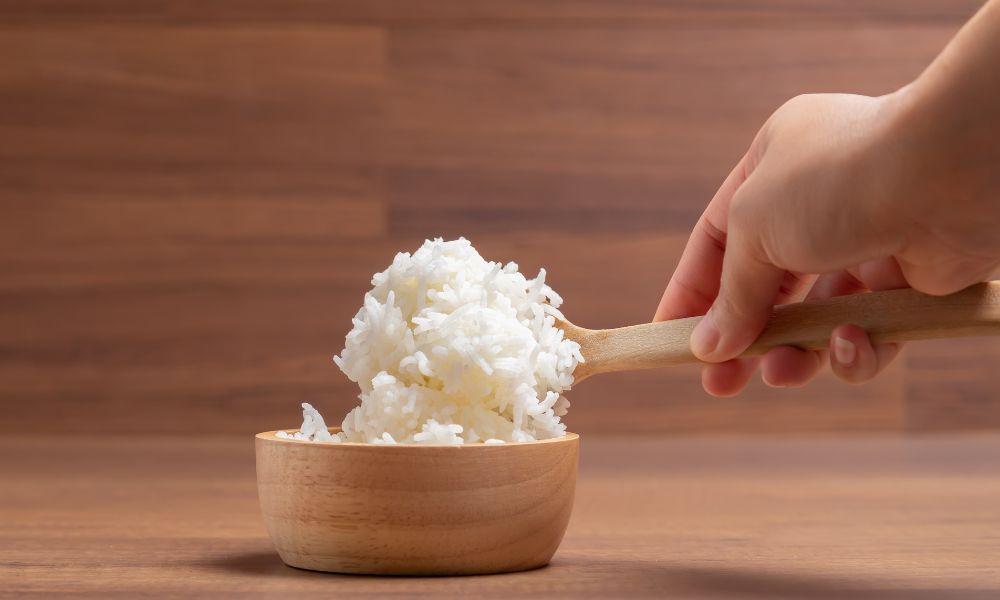
Cooling the Rice
Before freezing, it’s essential to cool the rice properly. Spread the cooked rice on a metal baking sheet or baking pan and place it in the fridge. This helps the rice cool faster and prevents condensation, which can lead to sogginess.
Portioning and Packaging
Once the rice is cool, portion it into single servings (1/2 cup as a standard serving). Use zip-top freezer bags or air-tight containers, and label them with the date and type of rice to ensure easy identification later.
Freezing Different Types of Rice
White Rice
Freezing plain white rice doesn’t affect its texture or flavor significantly. When you’re ready to reheat, follow the reheating instructions provided below.
Brown Rice
Brown rice also freezes well, with minimal changes in texture or taste. Follow the same reheating instructions as for white rice.
Sushi Rice
Sushi rice can be frozen, but it may lose some of its stickiness. To minimize this, follow the sushi rice storage guidelines and reheating instructions provided below.
Wild Rice
Wild rice freezes well and retains its unique, nutty flavor. Follow the same reheating instructions as for other types of rice.
Reheating Frozen Rice
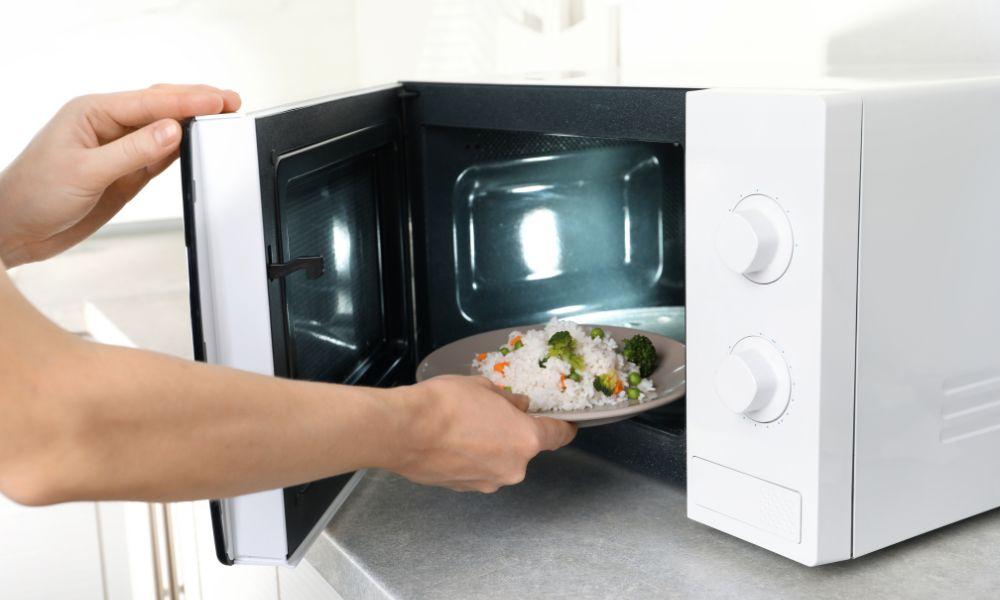
Microwave Reheating
To reheat frozen rice in the microwave, place the rice in a microwave-safe container and add a splash of water to prevent drying out. Cover the container and microwave on high for 1-2 minutes per serving, stirring occasionally, until heated through.
Stovetop Reheating
To reheat frozen rice on the stovetop, place the rice in a saucepan and add a splash of water. Cover and cook over low heat, stirring occasionally, for 3-5 minutes or until heated through.
Oven Reheating
To reheat frozen rice in the oven, preheat the oven to 350°F (175°C). Place the rice in an oven-safe dish and add a splash of water. Cover with aluminum foil and bake for 15-20 minutes, stirring occasionally, until heated through.
Tips for Using Frozen Rice
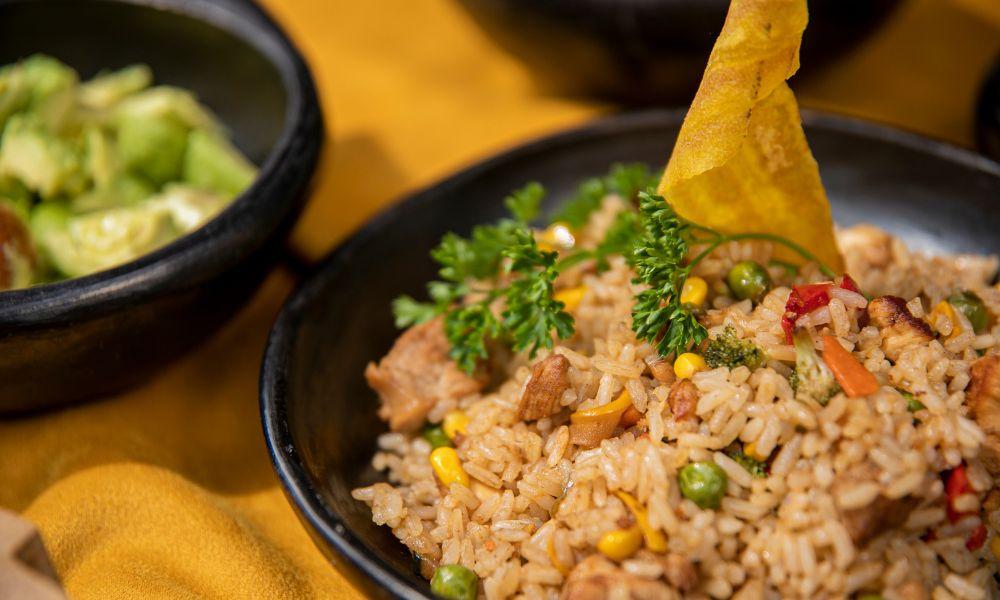
Rice Bowls and Casseroles
Frozen rice is perfect for quick rice bowls and casseroles. Simply reheat the rice and add your choice of protein, veggies, and sauce.
Stir-Fries
Using frozen rice in stir-fries is a time-saving hack. Reheat the rice as you cook the other ingredients, then toss everything together in a wok or large skillet.
Fried Rice
Frozen rice is ideal for making delicious fried rice. Since it’s already cooked and cooled, it’s less likely to turn mushy during the frying process.
Stuffing and Filling
Use frozen rice as a stuffing or filling for vegetables, poultry, or other dishes. Simply reheat the rice and mix with your choice of seasonings and ingredients.
Common Mistakes to Avoid
- Freezing hot or warm rice: Cool the rice completely before freezing to prevent sogginess.
- Overfilling containers or bags: Leave some space for the rice to expand during freezing.
- Not sealing containers or bags properly: Ensure that your storage containers are air-tight to prevent freezer burn and preserve the rice’s quality.
Conclusion
Freezing cooked rice offers numerous benefits, including preserving the freshness and flavor, preventing bacterial growth, and providing convenience for meal planning. By following proper storage and reheating techniques, you can enjoy delicious rice dishes anytime, even when you’re short on time.
FAQs
How long can I store cooked rice in the freezer?
Cooked rice can be stored in the freezer for up to 3 months. For optimal taste and texture, it’s best to consume the rice within this time frame.
Can I refreeze cooked rice after reheating?
It is not recommended to refreeze cooked rice after it has been reheated, as it may lead to a loss of quality, texture, and an increased risk of bacterial growth.
Is it safe to freeze cooked rice with other ingredients, like vegetables or meat?
Yes, you can freeze cooked rice dishes with other ingredients. Just ensure that all ingredients are cooled properly before freezing and follow the same storage guidelines as for plain cooked rice.
How do I know if frozen cooked rice has gone bad?
Signs of spoilage in frozen cooked rice include off-odors, mold growth, or a slimy texture. If you notice any of these signs, discard the rice and do not consume it.
Can I freeze cooked rice in plastic containers?
Yes, you can freeze cooked rice in plastic containers. Just make sure the containers are freezer-safe, air-tight, and properly sealed to prevent freezer burn and preserve the rice’s quality.
Can I freeze risotto or other creamy rice dishes?
You can freeze risotto and other creamy rice dishes, but the texture may change slightly upon reheating. To minimize this, reheat the dish gently on the stovetop, stirring occasionally, and consider adding a splash of liquid (such as broth or cream) to restore the creaminess.
How do I prevent cooked rice from clumping together when freezing?
To prevent clumping, cool the rice completely and spread it out on a baking sheet or pan before freezing. Once the rice is frozen, transfer it to an air-tight container or freezer bag for long-term storage.
Can I freeze cooked rice in larger portions?
Yes, you can freeze cooked rice in larger portions. However, portioning it into single servings or smaller quantities makes reheating and meal planning more convenient.